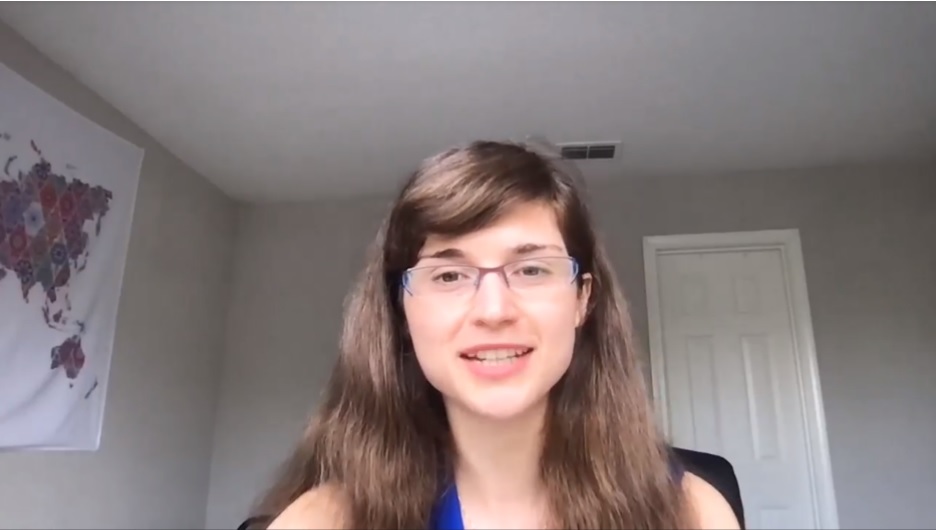
In Pursuit of Diverse Growth Opportunities: From Greece to the U.S.
Growing up in Greece, Christina Niavi was a curious child. She loved asking her parents questions and fell in love with science in school. At Democritus University in Greece for undergraduate school, her opportunities for scientific research were more limited, which is why she jumped at the chance to travel to the University of Cambridge for the Amgen Scholars Program (ASP) in 2017.
As she told a captive audience of Amgen Scholars at the recent Global Symposium, through ASP, Niavi experienced her first hybrid wet-dry lab work and that was it for her: She knew she wanted to work in the biosciences and is now in her third year as a PhD student in immunology and molecular pathogenesis at Emory University.
“My Amgen Scholars participation gave me not only vital skills but also ideas that I directly implemented in my next studies, providing a fresh perspective,” she says. That perspective is now fueling her work to investigate immune cells called T-cells and how therapies can harness them in therapies against chronic viral infections and cancer. With the lifetime risk of developing cancer close to 40%, she is driven to help find solutions.
Like so many in research fields, Niavi has had some setbacks due to the COVID-19 pandemic. “I had just finished my rotations when the lockdown happened, and it took 3 months to be permitted as a student to return on campus,” she explains. “Those 3 months were difficult as I had no research to work on but I took the opportunity to gain some new skills.” She took online classes in clinical trials and epidemiology, earning certification, and also worked on a review paper. “There is always something to do,” she says.
Indeed, Niavi consistently pursues opportunities to enhance her scientific skill set and grow in new ways. She fondly remembers her time as an Amgen Scholar, filled with “having my first lab experience abroad, meeting wonderful people that became friends for life, visiting places, get introduced to wonderful scientists, sharing science and culture with the fellow scholars, cooking, singing in the rain waiting for the bus in one of our little adventures in the UK countryside.” She says that she also valued her time learning to present research and the many opportunities for networking.
After her Amgen Scholars summer in her third year of undergraduate, she was accepted at the University of Pennsylvania to do an internship and work on her bachelor’s thesis in Immunology in the lab of E. John Wherry. “In that lab, I had a new perspective based on my Amgen Scholars project, studying ion channels in the context of T-cells,” she says. After graduation, she started her PhD at Emory University, working in the lab of Rafi Ahmed on T-cells.
“It is just unthinkable to me to have unequal representation in science; everyone should have equal opportunities. Starting from a small country with little funding for science, I understand the struggle, from personal experience — and the need to work hard for career opportunities.”
-Christina Niavi
“I feel very privileged to have this diverse training,” Niavi says. “Studying and working in different environments gave me the opportunity to get familiar with different teaching methods, research regulations, and science perspectives, while expanding my network of collaborators. It has helped me to be highly adjustable to any research setting and combine the strengths of each one to enhance my own learning and progress.” Being exposed to diverse environments outside her home country has also helped her personal growth, she says.
In addition to her Immunology research, Niavi spends time at Emory on projects to improve diversity, equity, and inclusion in science. She enthusiastically volunteers to serve on a committee around the topic. “It is just unthinkable to me to have unequal representation in science; everyone should have equal opportunities,” she says. “Starting from a small country with little funding for science, I understand the struggle, from personal experience — and the need to work hard for career opportunities.”
Niavi also makes time for work in science communication and outreach. “Science misinformation is extremely harmful,” she says. “I believe this is my moral obligation as a scientist.”

